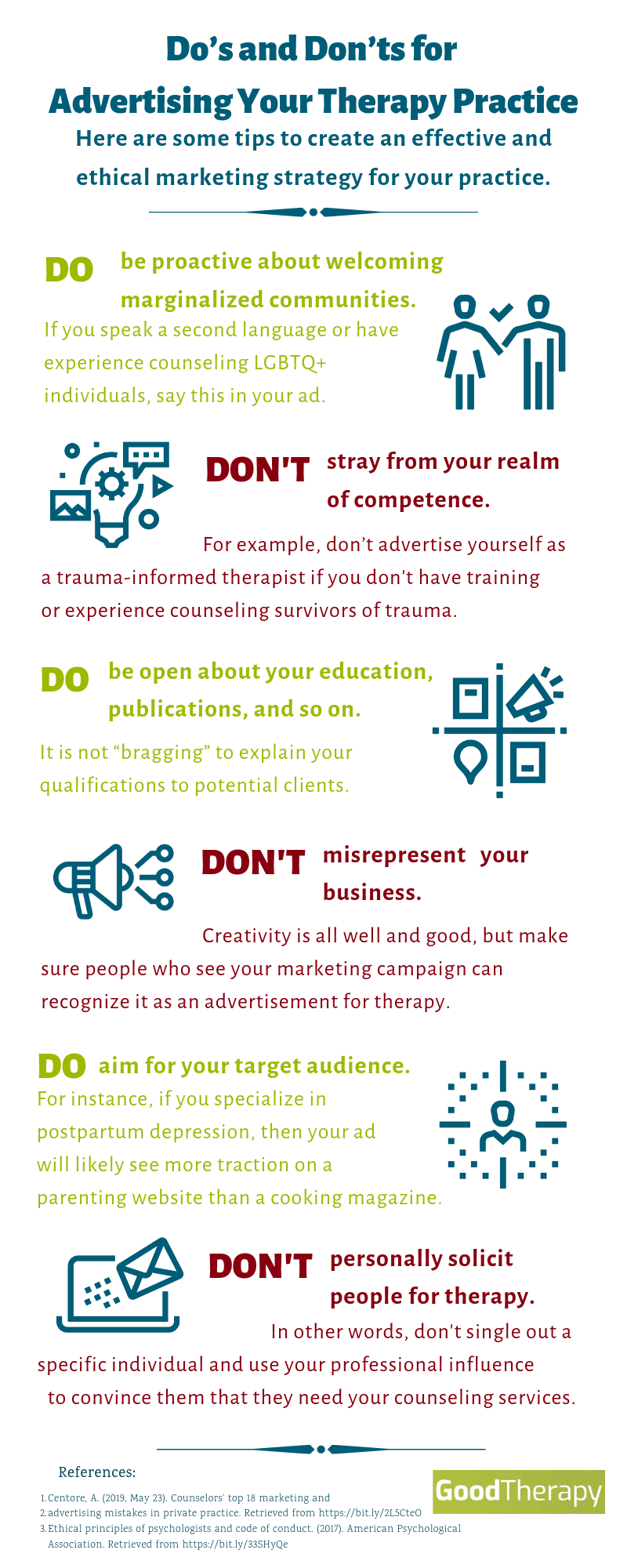
INFOGRAPHIC TEXT: DO'S AND DON'TS FOR ADVERTISING YOUR THERAPY PRACTICE
Here are some tips to create an effective and ethical marketing strategy for your practice.
- DO be proactive about welcoming marginalized communities. If you speak a second language or have experience counseling LGBTQ+ individuals, say this in your ad.
- DON'T stray from your realm of competence. For example, don't advertise yourself as a trauma-informed therapist if you don't have training or experience counseling survivors of trauma.
- DO be open about your education, publications, and so on. It is not "bragging" to explain your qualifications to potential clients.
- DON'T misrepresent your business. Creativity is all well and good, but make sure people who see your marketing campaign can recognize it as an advertisement for therapy.
- DO aim for your target audience. For instance, if you specialize in postpartum depression, then your ad will likely see more traction on a parenting website than a cooking magazine.
- DON'T personally solicit people for therapy. In other words, dont' single out a specific individual and use your professional influence to convince them that they need your counseling services.
References:
- Centore, A. (2019, May 23). Counselors’ top 18 marketing and advertising mistakes in private practice. Retrieved from https://bit.ly/2L5CteO
- Ethical principles of psychologists and code of conduct. (2017). American Psychological Association. Retrieved from https://bit.ly/33SHyQe


.png)